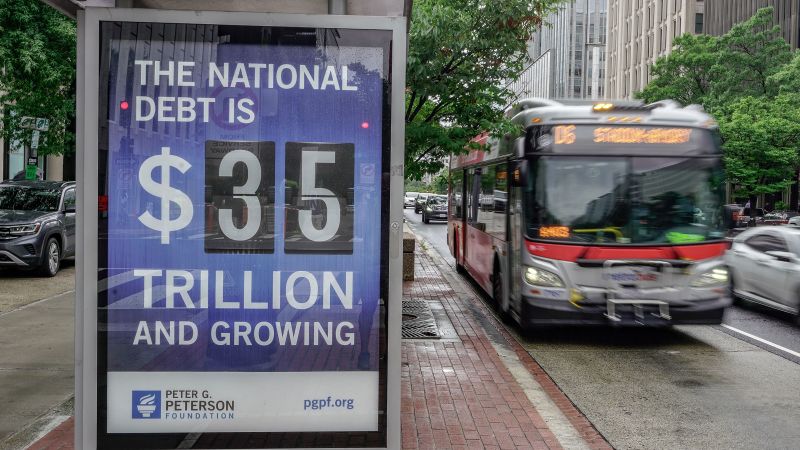
Harris’ proposals would increase the national debt, but Trump’s would add even more, study finds
CNN
Both Vice President Kamala Harris and former President Donald Trump are rolling out an ever-growing list of promises to voters – from making housing and health care more affordable to supporting manufacturers to providing tax relief to millions of Americans.
Both Vice President Kamala Harris and former President Donald Trump are rolling out ever-growing lists of promises to voters — from making housing and health care more affordable to supporting manufacturers to providing tax relief to millions of Americans. But those proposals come with hefty price tags, and the candidates have not laid out how they would fully cover the costs, a new analysis has found. As a result, the national debt would soar by trillions of dollars more regardless of who wins the election, further compounding the country’s fiscal problems. Harris’ plan would boost the debt by $3.5 trillion over the next decade, while Trump’s platform would cause it to spike by $7.5 trillion, according to the Committee for a Responsible Federal Budget’s report, released Monday. The watchdog group’s analysis is the latest in a series of reviews of the candidates’ plans, which generally find that Trump’s proposals would have a bigger impact on the national debt than Harris.’ The committee notes that its estimates contain a wide range of uncertainty and include many assumptions since neither candidate has issued detailed proposals. Its analysis draws on official campaign announcements and websites, white papers, social media posts, speeches, discussions with campaign staff, similar proposals in presidents’ budgets and other sources. The committee provided a range of cost estimates in its analysis because of the lack of detailed platforms. It found that Harris’ measures could have no significant impact on the debt or could increase it by $8.1 trillion. And Trump’s proposals could balloon the debt by between $1.5 trillion and $15.2 trillion. Also hard to determine is how Americans and companies could alter their behavior if these policies were to take effect. Nearly all require congressional approval. Neither Harris nor Trump has talked about reducing the nation’s heavy debt load, even though both congressional Republicans and Democrats have repeatedly said they want to rein in the debt, which currently stands at $35.7 trillion. But the federal government continues to spend more money than it collects in revenue, causing the debt to keep climbing swiftly. An array of experts, including Federal Reserve Chair Jerome Powell, have said the nation is on an unsustainable fiscal path.





















 Run 3 Space | Play Space Running Game
Run 3 Space | Play Space Running Game Traffic Jam 3D | Online Racing Game
Traffic Jam 3D | Online Racing Game Duck Hunt | Play Old Classic Game
Duck Hunt | Play Old Classic Game











